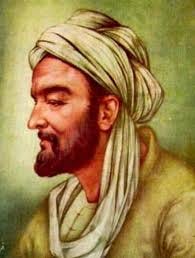An article on Islam and Psychology
 | ||
|
Psychology, as we understand it, is a comprehensive scientific study of the human mind and behaviour. It’s rooted in examining and understanding the human psyche, experiences & personality. In clinical psychology, it’s a tool in aiding one’s positive well being and maintaining that to be the best version of themselves.
Being your best self & seeking knowledge are some of the ethe of Islam and Islamic culture as Abu Hurairah, a companion of the Prophet Muhammed (PBUH), narrated
“If anyone pursues a path in search of knowledge, Allah will then by make easy for him a path to paradise; and he who is made slow by his actions will not be speeded by genealogy
- (Sunan Abi Dawud 3643)
Too often, we hear ill-informed claims that Islam is backwards when the Prophet’s sayings were an encouraging catapult for scholars and Muslims to research across all fields of humanity, from mathematics, science to geography and many more.
Psychology is primarily credited to the modern western era for its advancement, prowess & positive application in our world today. That is a credible statement, but some unsung heroes were making their own advancements in earlier civilisations. It would be wrong not to shine a light on these elite individuals. The Golden Age of Islam saw significant advances in medicine and humanity, which extended into the field of Psychology. This will be the first writing of many more to come, and the first individual I would like to shine a light on is…
Abu Zayed Al Balkhi:
Abu Zayed Al Balkhi was a Persian Muslim polymath in the 9th Century. His writings varied in different fields from geography, mathematics, and psychology. Though many of his writings were lost over time, the advancement in the papers found was astonishing. His sophisticated manuscript “The Sustenance for bodies and souls or Masalih al-Abdan wa al-Anfus” delves deeply into psychical health and the soul, which we can attach to the psyche in the modern era.
Al Balkhi’s manuscripts detailed the need to normalise psychological illness. That instantly rings a bell to now, where psychologists and societies advocate living in a world where mental illness is widely accepted, and stigmas are eradicated. In many communities, mental illness is an uncomfortable topic. Many even ascribe it to a punishment from God or a lack of belief. Research has found that viewing the mentally ill in that light is detrimental to their condition, hence why the advocacy to normalise it is prominent in society. What is remarkable is that Al Balkhi was one of the first advocates in the 9th Century who has written extensively on Islam and Psychology,
Furthermore, Al Balkhi believed there to be a strong link between the mind and body. He writes, “when the body becomes ill…it will prevent…learning and other (mental activities) or performing duties properly. And when the soul is afflicted, the body will lose its natural ability to enjoy pleasure and will find its life becoming distressed and disturbed”.
The relationship between mind and body was only highlighted centuries later by the works of Freud alike. Once again, Al Balkhi was ahead of his time.
Perhaps the most impressive work is his writings on what we know today as Obsessive-Compulsive disorder or OCD. A condition only defined correctly in the 19th Century, Al Balkhi wrote a term known as “Wasawis al sidr” in Arabic. It was common and still present in many places to label someone with OCD as having demons.
Still, Al Balkhi understood that the condition carried with its biological cause and not only categorised it, his writings also carried ways to diagnose it and the possible treatments for the state. If that is not groundbreaking in itself, it is a fact that his reports of the condition match exactly the modern-day DSM-5, which is the go-to book for psychological illness worldwide.
Finally, Abu Zayed Al Balkhi also heavily suggested talking as a therapy to improve an individual’s behaviour. He was quoted on depression and the suitable treatment “gentle, encouraging talk that brings back some happiness,” which is now common in all therapy sessions.
Further down the manuscripts, he supported the notion of opening up about one’s fears to combat them, which can be linked to modern-day CBT Therapy, where exposure to your fears is encouraged as a therapy method to desensitize individuals with their worries.
I strongly recommend anyone to read his book mentioned earlier and to understand how different society and human understanding was in the 9th Century (a must read read when it comes to Islam and Psychology); Al Balkhi is one of the unsung heroes in the world of modern-day Islam and Psychology.

Comments
Post a Comment
Feel free to comment